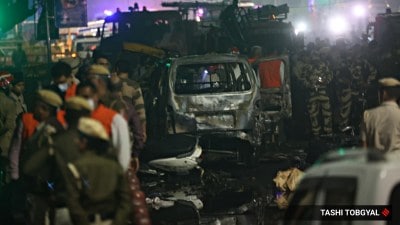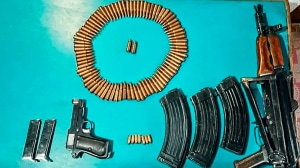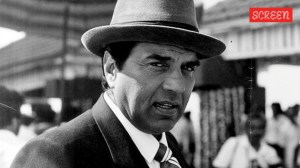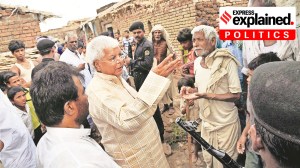Kasi’s trial and conviction generate solidarity within CIA
FAIRFAX (VIRGINIA), Nov 15: As keen-eyed sharpshooters looked down warily from surrounding rooftops, a 12-member Virginia jury today recomm...

FAIRFAX (VIRGINIA), Nov 15: As keen-eyed sharpshooters looked down warily from surrounding rooftops, a 12-member Virginia jury today recommended death sentence to Mir Aimal Kasi, the Pakistani national accused of gunning down a Central Investigation Agency (CIA) employee in a 1993 shootout in front of the Agency headquarters.
The capital punishment came barely 48-hours before the US Secretary of State is to set foot in Pakistan on the first leg of her three-nation South Asia trip. Moments after the sentence, the State Department put out yet another travel alert urging Americans in the region to exercise caution.
The six-man, six-woman, all-white jury deliberated for seven hours over two days before rejecting the defence argument that Kasi be spared because he had a brain condition that prevented him from recognising the consequences of his action.
Kasi, 33, remained immobile and expressionless as the sentence was read. Judith Barger, one of his attorneys, caressed his back. Kasi’s brother Mirwaiz and uncle Amanullah were visibly upset. In a brief announcement to the media outside, they said they would appeal the sentence in higher courts.
Unlike in the nanny murder case in Massachusetts, the jury recommendation is said to be binding on the judge under Virginia law.
Kasi had already received a life term last week for the murder of Lansing Bennett, the first of the two CIA employees he killed. Today’s capital punishment came for killing Frank Darling, the second CIA man he shot dead. The prosecution this time proved that Kasi first shot and wounded Darling, and then returned to shoot him again and blow his head up in cold blood while his wife cowered in the seat next to him.
As the court foreman read the decision, Judy Darling broke down and fell into the arms of her mother. “We are elated that after five long years, justice is finally served,” her father Richard Becker told newsmen outside, in the freezing pre-winter rain.
Besides the CIA staffers and families, among those present in the courtroom today was Stephanie Tenet, wife of CIA Director George Tenet. The Kasi trial seemed to generate a great deal of solidarity among the close knit members of the Agency.
Tenet, who spoke briefly at the news conference held by the victim’s family said,“These families represent the men and women of the CIA who risk their lives every day in the most dangerous parts of the world. Most sacrifice in total anonymity,” she said.
Indeed, the administration now seems acutely conscious that Pakistan is one of those dangerous parts and that the Baloch tribe Kasi hails from swears by vendetta and blood feuds. After a diatribe against Karachi at a briefing on Thursday, a State Department official acknowledged that special security measures were being taken for the Secretary of State’s visit but declined to spell them out publicly.
Security for the trial itself was unprecedented. Fairfax County, about 20 miles from Washington DC and one of the country’s wealthiest, is said to have spent $ 1.5 million on sharp shooter, metal detectors and concrete planters, among other things. The security was stepped up after the slaying of four Americans in Karachi earlier this week, apparently in retaliation of the Kasi verdict.



- 01
- 02
- 03
- 04
- 05




























